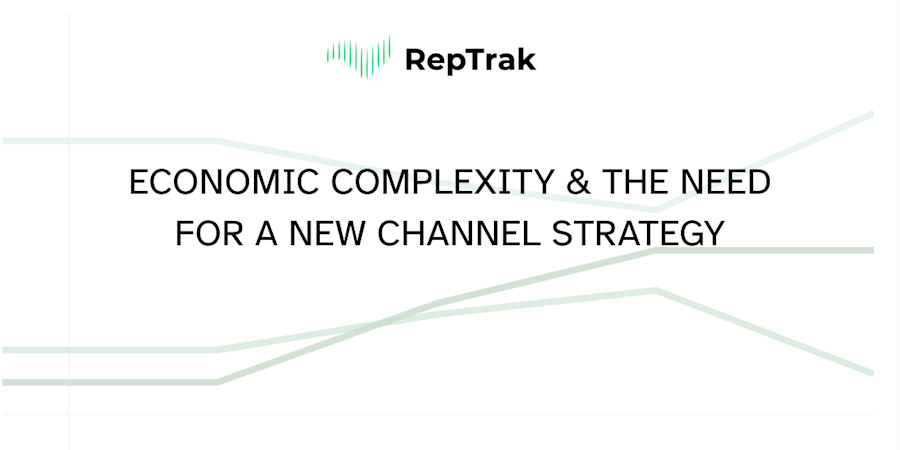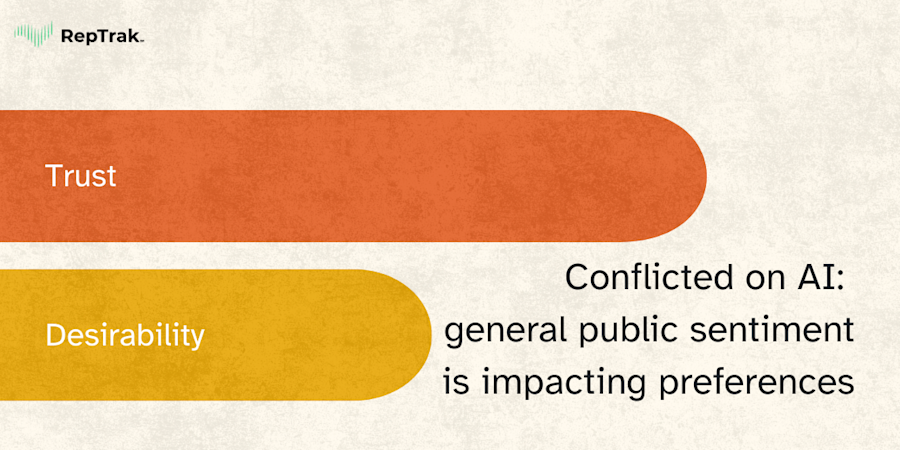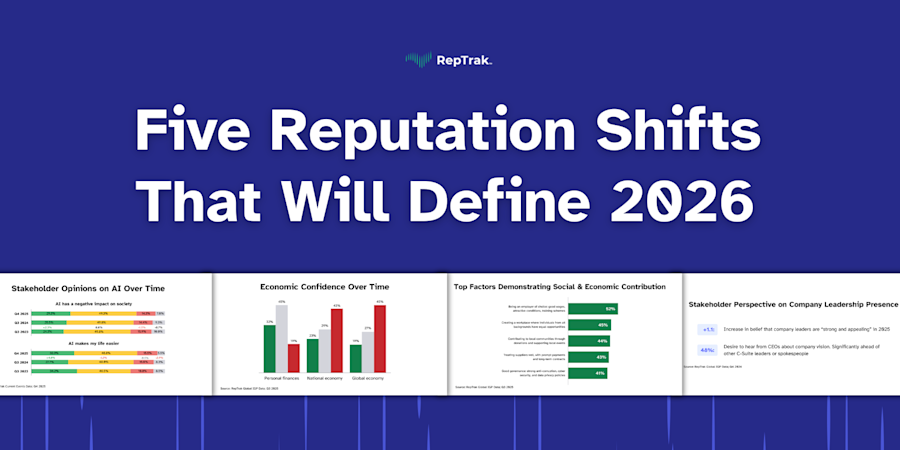How CSR Impacts Corporate Reputation
Blog Post19 Jul, 2018
Corporate social responsibility (CSR) is a way organizations choose to contribute to make the world a better place; to demonstrate that they care for a purpose other than profit.
Under the CSR umbrella you’ll find the "feel-good" side of business:
philanthropy
volunteerism
activism
environmental protection
education
ethics
workplace culture
Not every company has a dedicated CSR program, but those that do are typically more successful ... so more companies should have one.
Here’s what we know: CEOs (and Chief Communications and Marketing Officers) who support corporate social responsibility lead their companies to greater success than those who do not. Our ongoing CEO RepTrak and CSR RepTrak research shows that CSR is an essential part of a CEO’s reputation in addition to greater corporate reputation.
In an open letter to CEOs entitled “A Sense of Purpose,” Blackrock Chairman and CEO Larry Fink offers long-term corporate growth advice to his colleagues:
“Society is demanding that companies, both public and private, serve a social purpose. To prosper over time, every company must not only deliver financial performance, but also show it makes a positive contribution to society.”
We couldn’t agree more with Mr. Fink. Our research shows that CEOs who act responsibility, behave ethically, and genuinely care about social issues, drive greater stakeholder support.
But while it’s easy to say that CEO support is critical, the true impact of CSR on reputation is in the data: 91.4% of respondents would buy from a company with an excellent CSR program and 84.3% of respondents would give companies with excellent CSR programs the benefit of the doubt in the event of a crisis.
CSR is not about products and services, but it does have a direct impact on the general public’s willingness to buy from, invest in, and work for a given company—all things that directly impact corporate reputation.
The fastest rising company in the 2018 U.S. RepTrak is Subaru. The Japan-based automobile manufacturing company’s reputation score soared 8.9 points higher than the US Top 100 average. Products and services pushed the needle, but substantial increases in Workplace and Citizenship, both under the CSR umbrella, swiftly carried Subaru to the top.
How can companies grow CSR efforts?
First, a company must have a dedicated CSR program. Second, the company must clearly and accurately communicate those initiatives and commitments to stakeholders.
Keep in mind that stakeholders are not clamoring to familiarize themselves with the latest and greatest news at your company. Information must be shared in a strategic and systematically effective and genuine way. But be cautious of embellishment that will lead to stakeholder disappointment and reputational risk. Transparency and truthfulness are key.
Listed here are five tangible ways reputation leaders can ensure the public is aware of all things CSR-related at their companies and thus continue to grow their efforts:
1. Corporate leadership must be actively engaged in CSR. CEO support is essential to rally team efforts across your organization. This might also be the responsibility of a Chief Communication Officer or Chief Reputation Officer, if you’re fortunate enough to have one.
For example, in 2015, Google CEO Sundar Pichai, 2018’s most reputable CEO in the world, came forward to speak out in support of immigration—an issue that affects his company’s workforce, talent acquisition, and culture.
In his post, he wrote, “Let’s not let fear defeat our values. We must support Muslim and other minority communities in the U.S. and around the world.”
Taking a stand on a timely social issue gives the CEO a voice, one in which employees and general stakeholders alike can rally behind. It’s additionally helpful that Pichai’s vision aligns with (not against) Google’s mission.
2. CSR must align with corporate brand purpose. Avoid sending your audience mixed messages. Be clear about your overall purpose and your plans to make it a reality.
3. CSR agenda is about action, not just rhetoric. It is not new that actions speak louder than words. Show what you and your company are all about.
When two black men were arrested for trespassing in a Philadelphia-based Starbucks, it set off a tailspin of negative press, calling the company whose mission is to “inspire and nourish the human spirit” racist.
CEO Kevin Johnson publicly apologized, but also met with the men in person. He closed 8,000 company-owned stores in the U.S. for an afternoon of racial bias training for over 175,000 employees.
This is CSR in action, not just words.
4. CSR must drive internal and external engagement. Don’t forget about your employee stakeholders. Turn your team into corporate ambassadors, fans of your brand who encourage friends and family to work for and buy from it. Empower your team to have an impact on your overall brand purpose.
5. CSR must focus on human and social interests. CSR is about people. And so is business. Be human in your approach to sustainability.
LEGO, the second-most reputable company globally, is an example of a company that recently rebuilt itself as a purposeful and sustainable brand. It’s new CEO, Niels B. Christiansen speaks to the company’s commitment to renewable energy and sustainable materials, but focuses mostly on how Lego bricks help children develop creativity through play.
Clear CSR initiatives lead to greater stakeholder support. These stakeholders—consumers, investors, employees, policy-makers—enhance reputation and drive revenue. Education surrounding the importance of CSR is paramount, as is thoughtful presentation of what is being accomplished, and action.
Melanie LoBue The RepTrak Company @melanielobue [email protected]






